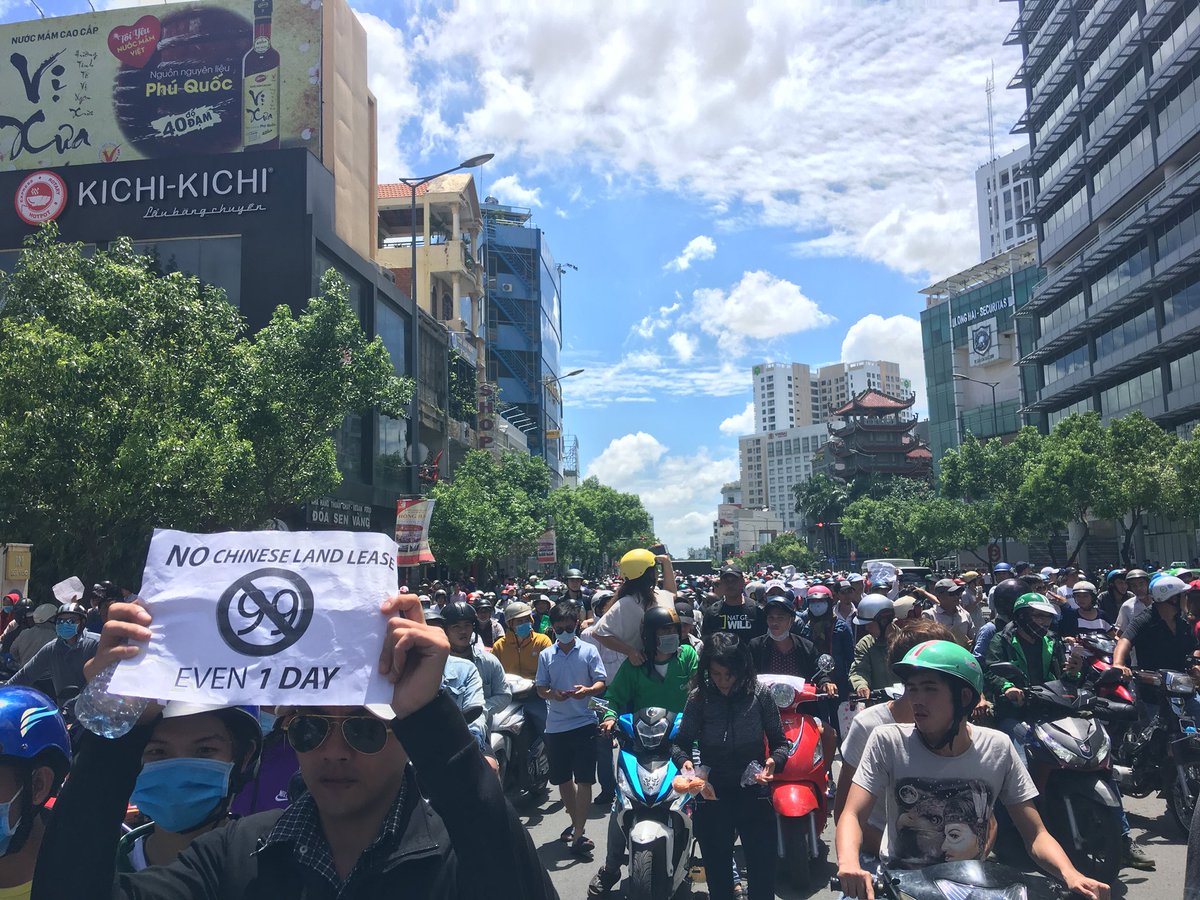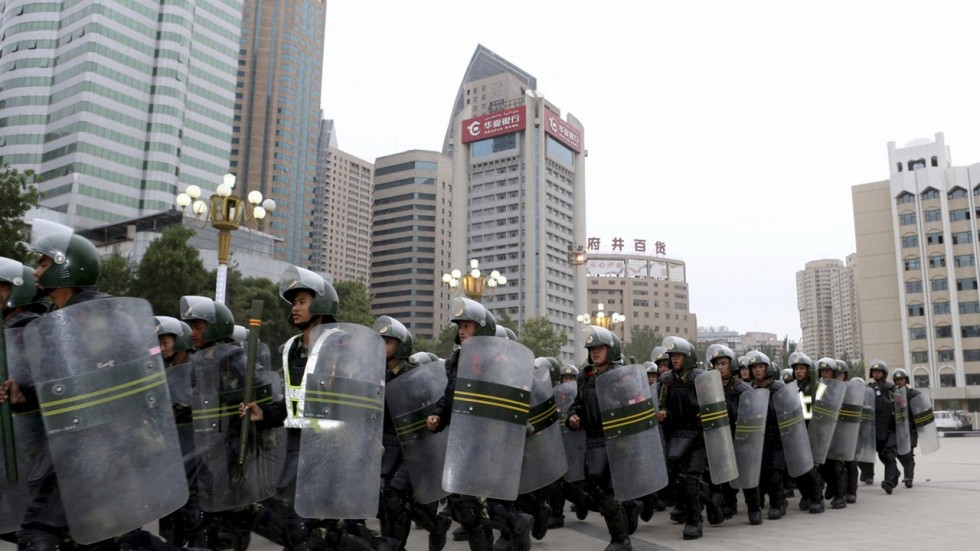Protesters held signs that said “No leasing land to Chinese communists for even one day” and “Cybersecurity law kills freedom”.
AP






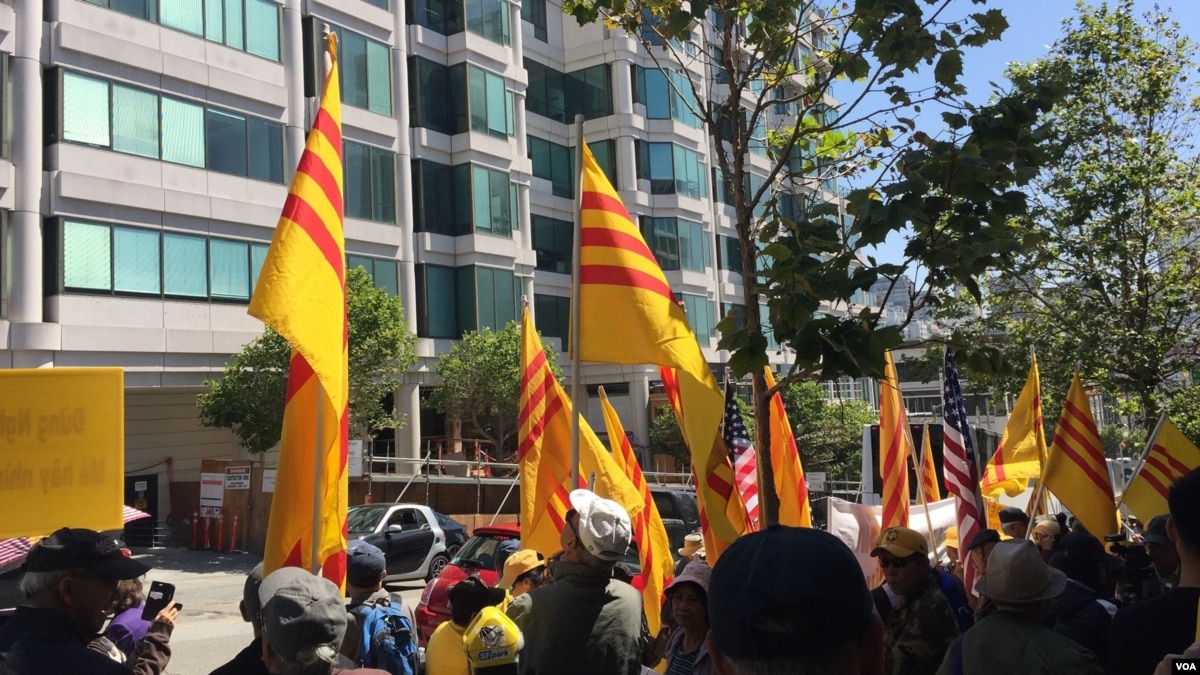
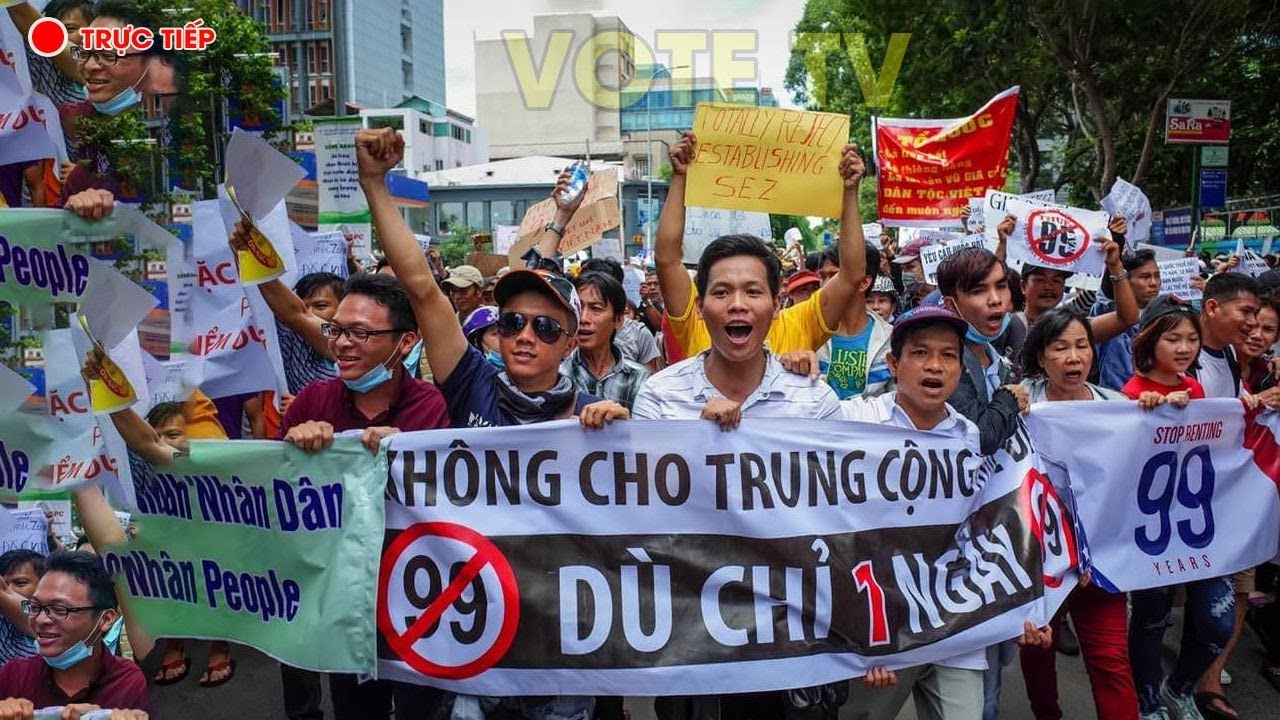

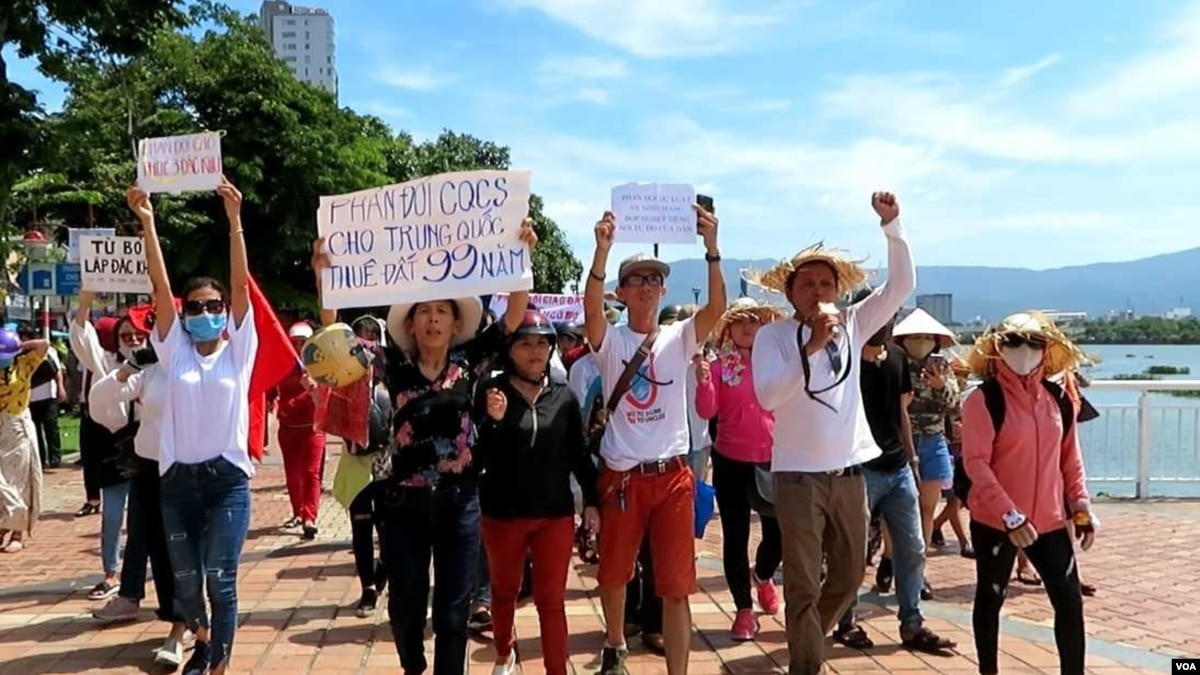




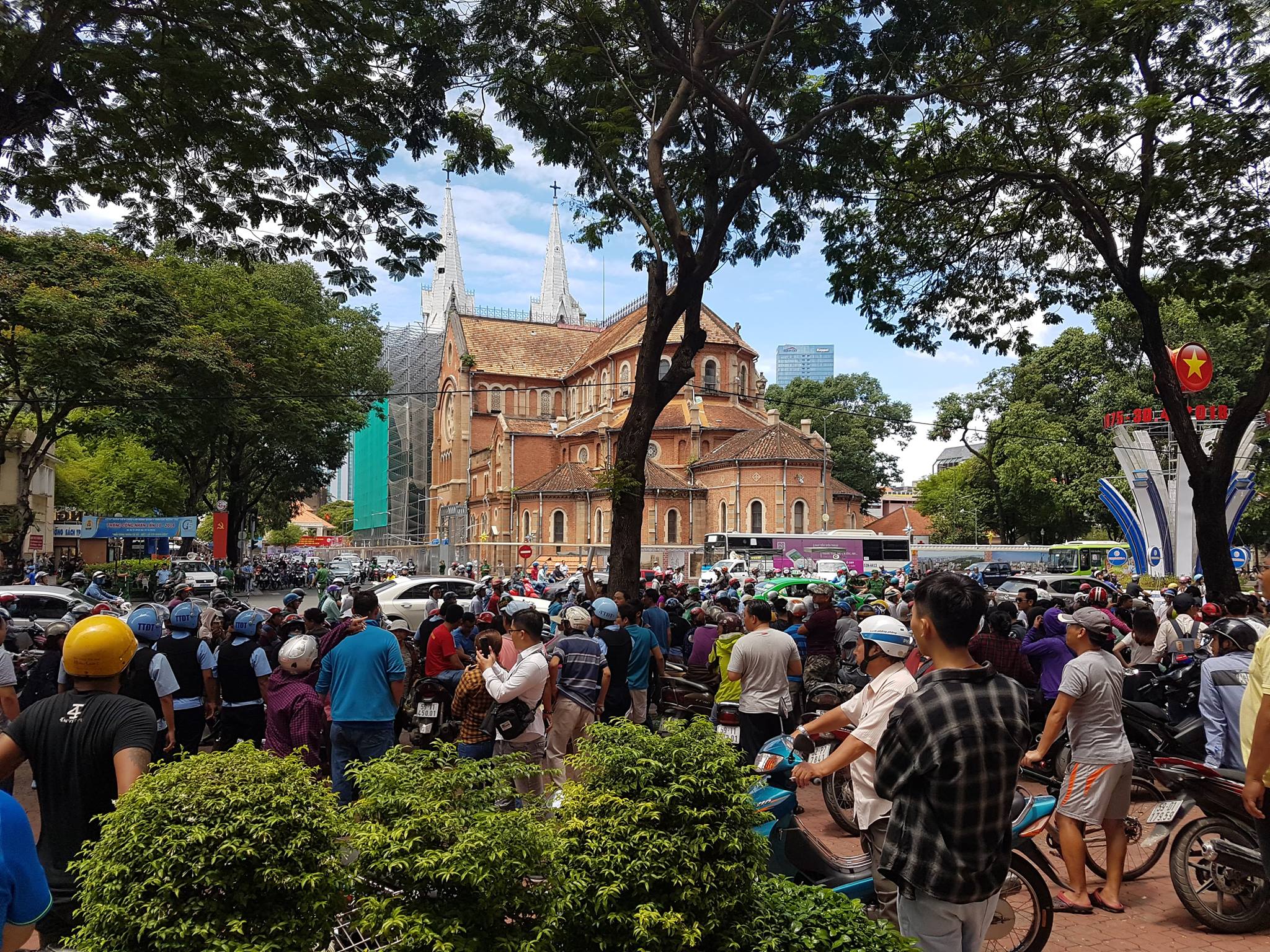


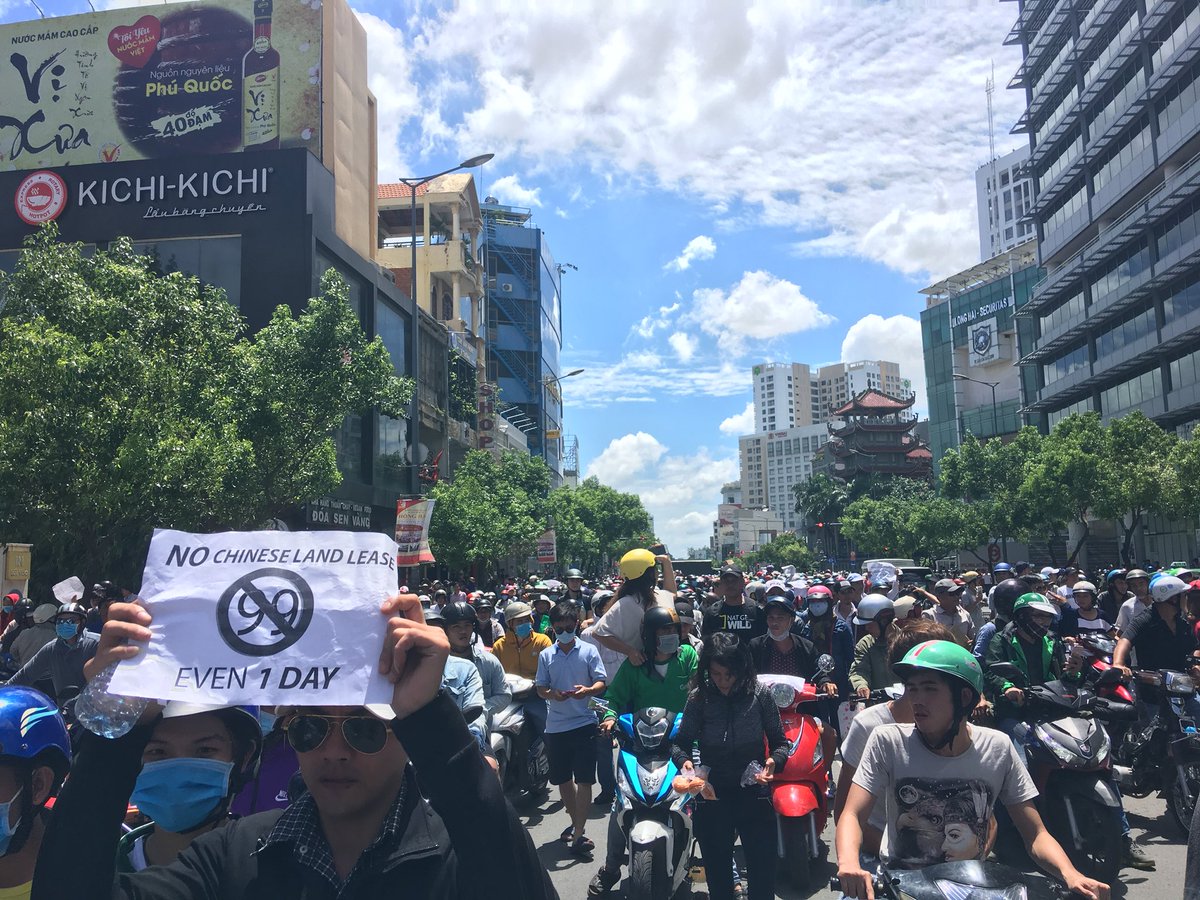
AP


















Vietnamese police have arrested eight more people after protests a week ago over a proposed law on special economic zones that protesters fear would fall into the hands of Chinese investors.
The men from the south central province of Binh Thuan were accused of disturbing public order, opposing officials and damaging state property, the state-run Tuoi Tre newspaper reported.
Protests against the law took place across the country, including in the southern commercial hub of Saigon where seven people were arrested for allegedly disturbing security and opposing officials.
Protesters fear the three proposed special economic zones, where land could be rented for up to 99 years, would be dominated by investors from China.
Lawmakers have postponed the passage of the law until October.
Security on Sunday was tight in many cities and provinces in Vietnam, with a large presence of police in public areas.
Protests against the law took place across the country, including in the southern commercial hub of Saigon where seven people were arrested for allegedly disturbing security and opposing officials.
Protesters fear the three proposed special economic zones, where land could be rented for up to 99 years, would be dominated by investors from China.
Lawmakers have postponed the passage of the law until October.
Security on Sunday was tight in many cities and provinces in Vietnam, with a large presence of police in public areas.
But in central Ha Tinh province, live-stream footage on Facebook showed thousands of people attending a Sunday mass protesting peacefully against the laws.
Protesters held signs that said “No leasing land to Chinese communists for even one day” and “Cybersecurity law kills freedom”.
Protesters held signs that said “No leasing land to Chinese communists for even one day” and “Cybersecurity law kills freedom”.
Witnesses said there were no clashes with police during the two-hour protest.
The Vietnamese government has vowed to punish “extremists” it said had instigated rare clashes with police in Binh Thuan province.
The Vietnamese government has vowed to punish “extremists” it said had instigated rare clashes with police in Binh Thuan province.
Protesters hurled bricks and Molotov cocktails at police, damaging some government buildings.
Charge d’affaires of the Chinese embassy in Vietnam, Yin Haihong, said on Friday that the cause of this incident was internal affairs in Vietnam and there was no connection with China.
“However, the incident still has a negative impact on Sino-Vietnamese relations;” Yin said in an embassy statement.
Charge d’affaires of the Chinese embassy in Vietnam, Yin Haihong, said on Friday that the cause of this incident was internal affairs in Vietnam and there was no connection with China.
“However, the incident still has a negative impact on Sino-Vietnamese relations;” Yin said in an embassy statement.
 Protesters in Saigon, Vietnam, on Sunday held banners denouncing a proposal to create special economic zones favorable to China.
Protesters in Saigon, Vietnam, on Sunday held banners denouncing a proposal to create special economic zones favorable to China. Will Nguyen, 32, of Houston, has been studying at the University of Singapore.
Will Nguyen, 32, of Houston, has been studying at the University of Singapore.